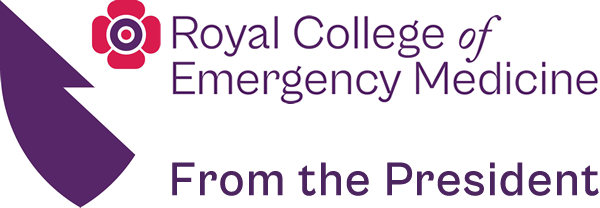In March 2020, just weeks before the first national lockdown, we launched our flagship RCEM CARES campaign. The campaign focused on addressing the mismatch between demand and capacity in the Urgent and Emergency Care (UEC) system by tackling Crowding, Access, Retention, Experience, and Safety.
Although the CARES campaign was not developed with the pandemic in mind – many of our recommendations were brought into sharp focus during the pandemic, particularly during the second wave. In September 2020, we updated the campaign to take into account the health policy challenges – such as PPE, testing infrastructure, IPC measures – that surfaced as a result of the pandemic.
Ahead of launching a refreshed version of CARES fit for a covid endemic world, this blog examines the successes and the challenges we’ve had in influencing politicians and the policy agenda to ensure that the challenges facing the UEC system are acknowledged and addressed.
The nature of policy change
Before we start, it is important to understand what we mean by policy change. Some have defined policy change as a change in attitude, principle, or point of view. We would raise the bar higher, and define policy change as successful adoptions of the key recommendations from our RCEM CARES campaign.
It is important to highlight that policy change is messy, incremental, and multifactorial. Change does not happen serendipitously. You could argue that it is a matter of defining problems, proposing policy, and optimising politics: indeed, the greatest policy changes grow out of the coupling of problems, policy proposals, and politics while simultaneously taking advantage of the attention cycle around certain issues.
Our CARES campaign clearly articulated the problems facing the UEC system and our policy solutions but what did we do about the politics? As part of our influencing and public affairs activity we have done the following:
- Participated in 36 meetings with Government Ministers and Parliamentarians from across the UK.
- Disseminated 20 briefings to Parliamentarians, Members of the Senedd, Members of Scottish Parliament, and Northern Ireland Assembly Members
- Responded to 14 policy consultations
- Provided oral evidence to three select committee inquiries
- Worked with Parliamentarians from across the UK to table 23 written parliamentary questions
- Participated in events at Labour and Conservative Party Conferences which allowed us to discuss themes around capacity, staffing and inequalities at length with MPs.
So, what have we achieved so far?
In September, the Government announced a manifesto-busting tax rise to grow NHS England’s budget by the equivalent of 3.9% per year in real terms.
Although we called for an increase by an average of 5% per year in real terms, an increased multi-year settlement gives the NHS the certainty it needs to plan effectively. Additionally, the Comprehensive Spending Review committed £5.9 billion for capital funding in the NHS. Although these substantial interventions from the Treasury are welcome – given the nature of current demands placed on the UEC system, the intervention may not be enough to reform our healthcare service.
In October, the Government launched the Office for Health Improvement and Disparities (OHID).
Our RCEM CARES campaign recognised the need to take a holistic approach to tackling health inequalities. Alongside this we have campaigned with colleagues across the sector for more action on health inequality. The Government established OHID to tackle health inequalities across the country and work across Government departments to improve public health. We are working closely with the Inequalities in Health Alliance to push for a cross-government strategy on addressing health inequalities.
The Discharge to Assess model has been maintained and the Government has ring-fenced some funding for social care.
Emergency Departments experience first-hand the consequences of a failed social care system which does not allow for the timely discharge of patients. We have long called on the Government to fix the crisis in social care. Whilst we recognise there is more that needs to be done in this area, we welcomed the extension of the Discharge to Assess model and the progress made on securing additional social care funding.
The Associate Specialist Grade has been restored
RCEM has campaigned to restore the Associate Specialist Grade. We know this grade plays an important role in the maintenance of senior cover in the ED and we believe this will assist in retention of doctors within our specialty. Additionally, we have published a number of guidance documents to support sustainable careers and retention of clinicians in EDs.
There is now adequate stock of PPE
Through the surveys we carried out with our members and our report examining PPE, ethnic minorities, and occupational risk, we know that there were disparities in accessing appropriate PPE. Thankfully, access and supply to PPE are no longer a major concern.
In response to the challenges around infection prevention and control, we updated our College Best Practice Guidelines.
We worked closely with our EDI Committee and Women in Emergency Medicine Special Interest Group to ensure that our updated Infection Prevention and Control Best Practice Guidelines considered the diverse experiences of our membership.
What recommendations are in progress?
In England, the 12-hour metric from time of arrival is now being collected and the four-hour standard in Scotland has been retained.
We asked Governments and the NHS in four UK nations to set, monitor, and review metrics that promote patient flow and prioritise care of the most seriously ill and injured patients. We have long campaigned to raise awareness that the 12-hour metric from decision to admit represents the tip of the iceberg: for example, the number of patients waiting for twelve hours or more from time of arrival in 2020/21 was 21 times the number of patients waiting twelve hours or more from decision to admit. We have made some great progress in turning the dial on this measure – and although the data is now being collected and reported, we will continue to press for full transparency as it is important for this data to be published in full.
What’s next?
Despite some clear wins for the CARES campaign – it is evident that we still have a way to go. Although our core recommendation around the capacity of the UEC system are yet to cut through to policymakers – we will continue to lobby and advocate to ensure your voices are heard.
Governments need to act now to secure safe staffing of Emergency Departments.
Our Retain, Recruit, Recover report highlighted the staffing shortage in Emergency Medicine and outlined the economic case for improving retention of staff working in EDs. Additionally, we have worked collaboratively with other royal colleges and the Academy of Medical Royal Colleges to support an amendment to the Health and Care Bill – which would strengthen workforce planning accountability. We also contributed to HEE’s strategic framework and published our first ever census of Scottish Emergency Departments. We will continue to advocate tirelessly for better retention and safe staffing in our EDs.
Governments need to expand staffed bed capacity across the UK.
The lack of hospital beds in the NHS is an issue that was brought into sharp focus during the pandemic. We will continue to highlight mismatch between capacity and demand and call for additional beds in the system. Earlier this year we published a parliamentary explainer on hospital beds and provided MPs with an analysis on bed numbers in their constituencies. Although we welcomed the additional £1.5billion allocated by the Chancellor in the Comprehensive Spending Review to improve bed capacity, we highlighted the lack of direction in the current spending round over HEE’s budget. As the Nightingale initiative revealed during the pandemic, extra beds cannot be operationalised without the staff to care for patients.
Improve clinician involvement with call handling services.
The aim of the Phone First scheme was to reduce crowding in Emergency Departments. When we surveyed our membership in May 2021 51% of respondents expressed that Phone First services had increased or significantly increased crowding in their EDs. We know that referral rates drop when the service is staffed by clinicians. We will continue to push for transparency around the evaluation of Phone First services along with greater clinical validation of the service.
Conclusion
It is promising to see that our lobbying efforts are paying off. However, we recognise that there is no room for complacency. We know we are working with a Government that is taking a more proactive role in dispensing power over health policy. In his speech at Conservative Party Conference, the Secretary of State of Health and Social Care claimed that 2022 will be a year of reform. We cannot reform the health and social care service without additional staff and capacity to meet the healthcare needs of the population. We will do everything in our power to both influence and hold the Government to account on their ambitions for reform and ensure that the challenges facing the UEC system are at the top of the policy agenda.
RCEM CARES: The Next Phase is our updated strategy for the challenges ahead, you can find this on our CARES webpage here.


